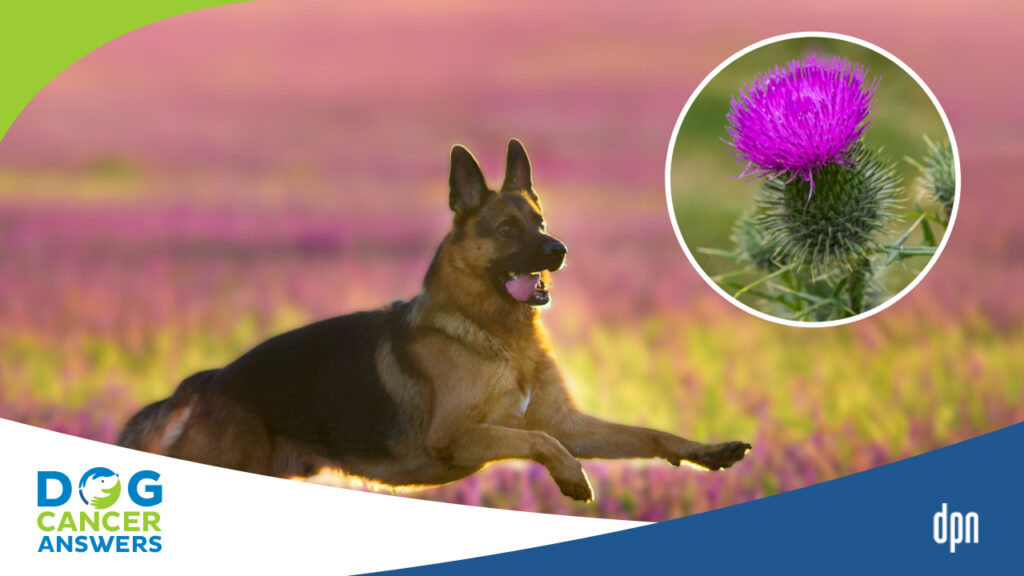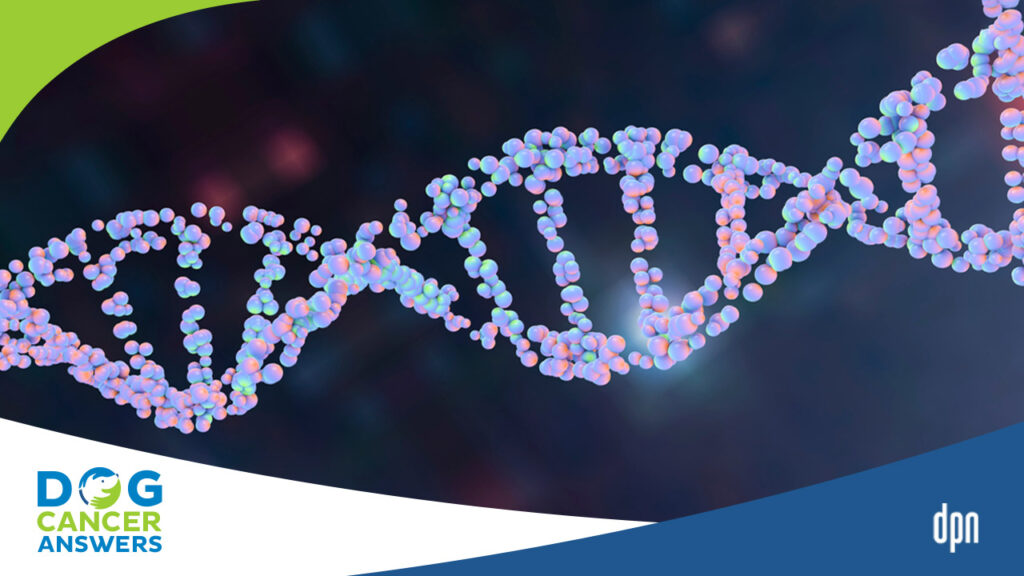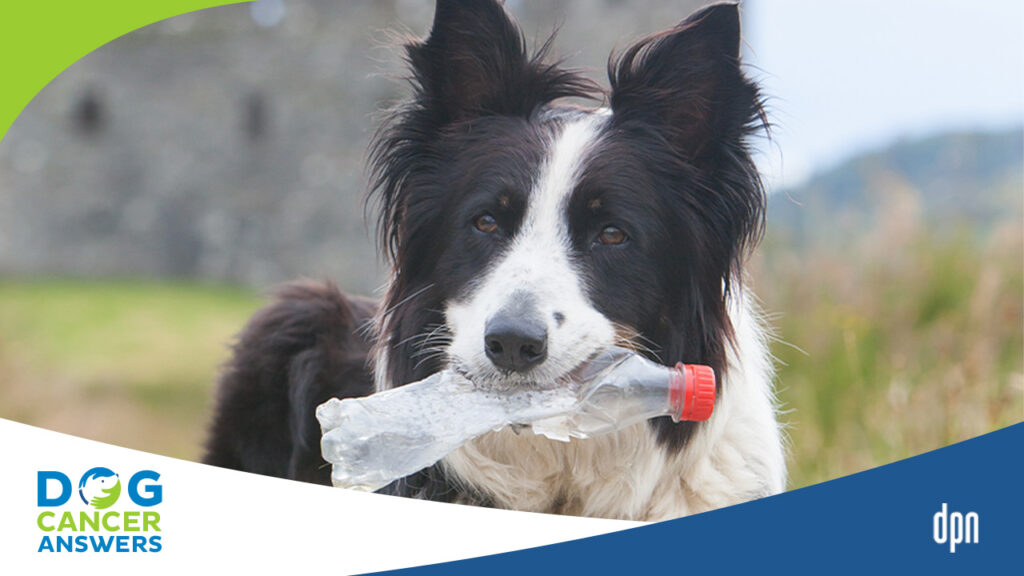>> Dr. Susan Ettinger: So, there are the benign adenomas and then there’s the malignant category. Regardless of whether it’s a benign cancer or malignant cancer, early detection is so key because even these benign tumors can be really challenging if they’re not detected early and they require a big surgery.
>> Narrator: Welcome to Dog Cancer Answers, where we help you help your dog with cancer. Here’s your host, James Jacobson.
>> James Jacobson: Hello friend. Thank you for joining me this week on dog cancer answers with 2021, right around the corner and the ever so dreaded 2020 year, finally coming to an end, we wanted to take a moment to do an end of the year rewind on one of our most watched and listened to episodes in the history of Dog Cancer Answers.
Since this video aired in 2011– and its corresponding audio podcast aired. It has reached over 54,000 dog lovers on the internet who are desperately seeking help and answers about their dog’s cancer. And still in 2020, it continues to be searched for and watched and listened to over and over again in very high volume– which indicates that perianal and anal gland tumors still are affecting too many of our dogs.
So, let’s go ahead and take a listen to this interview with the authors of the Dog Cancer Survival Guide, Dr. Demian Dressler and Dr. Susan Ettinger to hear what they have to say about perianal and anal sac tumors.
One of the types of the cancers that you address in the Dog Cancer Survival Guide are perianal, anal sac cancers, cancers of the rear end. Dr. Dressler, what are the signs and symptoms that you might be looking at if your dog has one of these cancers?
>> Dr. Demian Dressler: Well, these cancers are similar to some other cancers, such as cancers that are current in the mouth and the oral cavity. In that many times, they’re not noticed right off the bat. And this is for, I think, obvious reasons, not too many guardians spend a lot of time inspecting their dogs rear-end. So, most of the time the tumors are either caught later, after they’ve been there for a while and they’ve gotten pretty big or the veterinarian will notice it during the course of a routine physical.
And these tumors they’re gross and they’re right around the rear end. And some of them are benign and some of them are malignant. And it brings up a really important point, which is that veterinarians really need to be doing rectal exams on elderly dogs; both male dogs, and also female dogs, because not all of these tumors are going to be occurring where you can see them with the naked eye. Sometimes they occur deeper and they could be felt with the fingertips as opposed to relying on visual inspection alone.
>> James Jacobson: Dr. Ettinger, what are your thoughts on perianal and anal sac tumors?
>> Dr. Susan Ettinger: Yeah, it’s a umbrella term for a couple of different types of tumors, Dr. Dressler pointed out. And so, there are the benign adenomas, which, you know, regardless of whether it’s a benign cancer, malignant cancer, early detection is so key because even these benign tumors can be really challenging if they’re not detected early and they require a big surgery.
Some of those are actually associated with testosterone levels. So, in some of those big tumors, if the dog is still intact, you can castrate them. And the tumors may resolve completely on their own or at least be smaller and more surgical. And then there’s the malignant category. There’s the anal sac adenocarcinomas and the sebaceous gland adenocarcinomas, and they vary in how aggressive they are in their metastatic pattern.
But it’s definitely one where you want to try to find early and then, you know, primary treatment is going to be surgery. And in some of these cases, you may be looking at chemotherapy. Some cases, radiation may be required as well. So, it can be a mixed bag of treatment options.
There’s also some exciting evidence that Palladia has some anti-cancer properties for this tumor as well. So, some new options out there that could be useful for your pet.
>> James Jacobson: Dr. Dressler, what options do you commonly use and recommend for perianal and anal sac tumors?
>> Dr. Demian Dressler: Right, well, let me bounce back. I forgot to mention something which is kind of interesting. The more malignant types of these cancers secrete a chemical signal in the body. Which can elevate the blood calcium– and this is another pitch for doing early detection testing, especially in dogs that are usually over the age of seven, maybe eight, give or take– something like that.
And you can see a high blood calcium level, and that can be a flag, in some cases at least, for these types of cancers– for your vet to go on a search and many times they’ll turn up in the rear end.
But back to your question, which had to do with what do we do. So, for the most common benign ones, it’s really important to get your dog neutered later in life, because that will help to limit the regrowth of the adenomas, the most common benign forms. And then in addition to what Dr. Ettinger had pointed out, we want to change to a cancer fighting diet. We want to bring in plant supplements, phytochemicals, which are called apoptogens. Those are certain substances that can help turn on cancer cell suicide– very beneficial in my experience.
Some of these cases will require a stool softeners as a part of the therapy, because sometimes there can be some difficulty evacuating, solid waste and pooping, and we have to pay attention to brain chemistry. We have to pay attention to life quality by deliberately taking steps to decrease stress and improve the life quality of our patients. So, we can have a really good long life together.
>> James Jacobson: Well friends, this may conclude this week’s episode, but the information on perianal and anal sac tumors doesn’t end here, because we have so much for you in our back catalog of previously aired shows. Including an episode, I recorded with Dr. Dressler from September of this year found on your YouTube playlist or in our podcast feed under the name Exam Room Series: Perianal and Anal Sac Tumors. We’ll have a link to that in today’s show-notes.
If you liked Dog Cancer Answers, don’t forget to like us on Facebook and to subscribe to us in YouTube and in Spotify or Apple podcasts or your favorite podcast app.
And of course, make sure to check out this week’s show-notes on our website, dogcanceranswers.com. We’ve added many helpful links to articles about what causes these kinds of tumors, as well as advice on some of the full spectrum treatment options that are available to help you manage your dog’s cancer.
We have a message from this week’s sponsor. And then I will give you all the details about how you can call us with your dog cancer question. Stay tuned. We’ll be right back.
We’d like to once again, thank our sponsor, The Dog Cancer Survival Guide book by Demian Dressler and Sue Ettinger. It’s available both online and in brick-and-mortar stores.
And remember getting the book also helps to support this podcast when you get it directly from the publisher, via the website at dogcancerbook.com. And use the promo code “podcast” for 10% off. That is www.dogcancerbook.com.
Did you hear those tones? I know you did. They are here to remind me to remind you that we have veterinarians on call at Dog Cancer Answers on our listener line. If you have questions for one of our dog cancer vets, give us a call and tell us about it. And we’ll make sure that your question is addressed with one of our veterinary experts. And it could be featured on a future episode of Dog Cancer Answers.
The number to call is (808) 868-3200. That is (808) 868-3200. It’s a 24 hour day seven day a week recorded line. So, you can call us anytime with your dog cancer questions again, (808) 868-3200.
Well, that is it for today. Thanks again for joining me this week. Until next time. I’m James Jacobson and from all of us here at Dog Cancer Answers and Dog Podcast Network stay safe and we’ll see you in 2021. Aloha.
>> Narrator: Thank you for listening to Dog Cancer Answers. If you’d like to connect, please visit our website at dogcanceranswers.com or call our listener line at (808) 868-3200.
And here’s a friendly reminder that you probably already know. This podcast is provided for informational and educational purposes only. It’s not meant to take the place of the advice you receive from your dog’s veterinarian.
Only veterinarians who examine your dog can give you veterinary advice or diagnose your dog’s medical condition. Your reliance on the information you hear on this podcast is solely at your own risk. If your dog has a specific health problem, contact your veterinarian.
Also, please keep in mind that veterinary information can change rapidly. Therefore, some information may be out of date. Dog Cancer Answers is a presentation of Maui Media in association with Dog Podcast Network.






